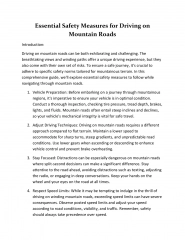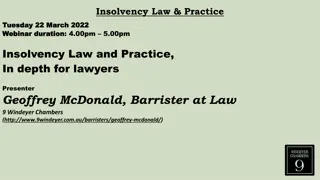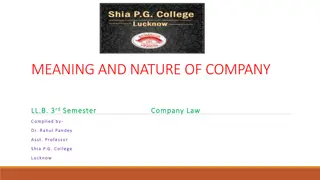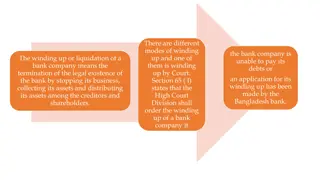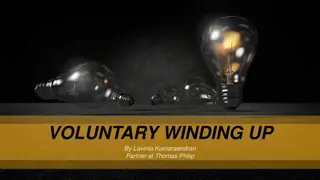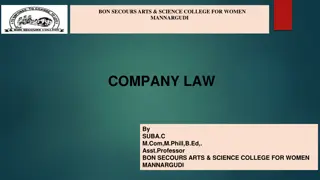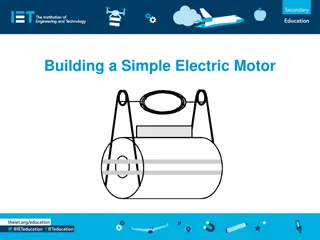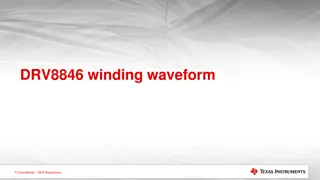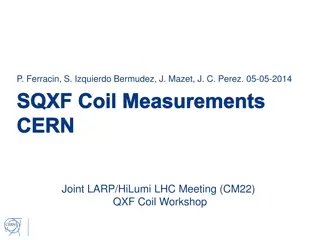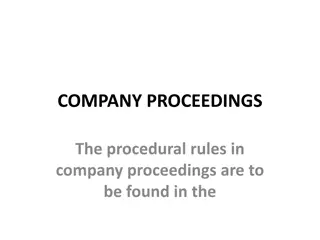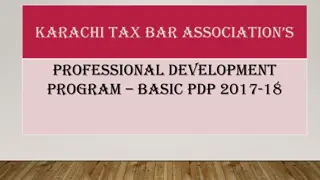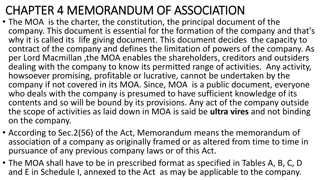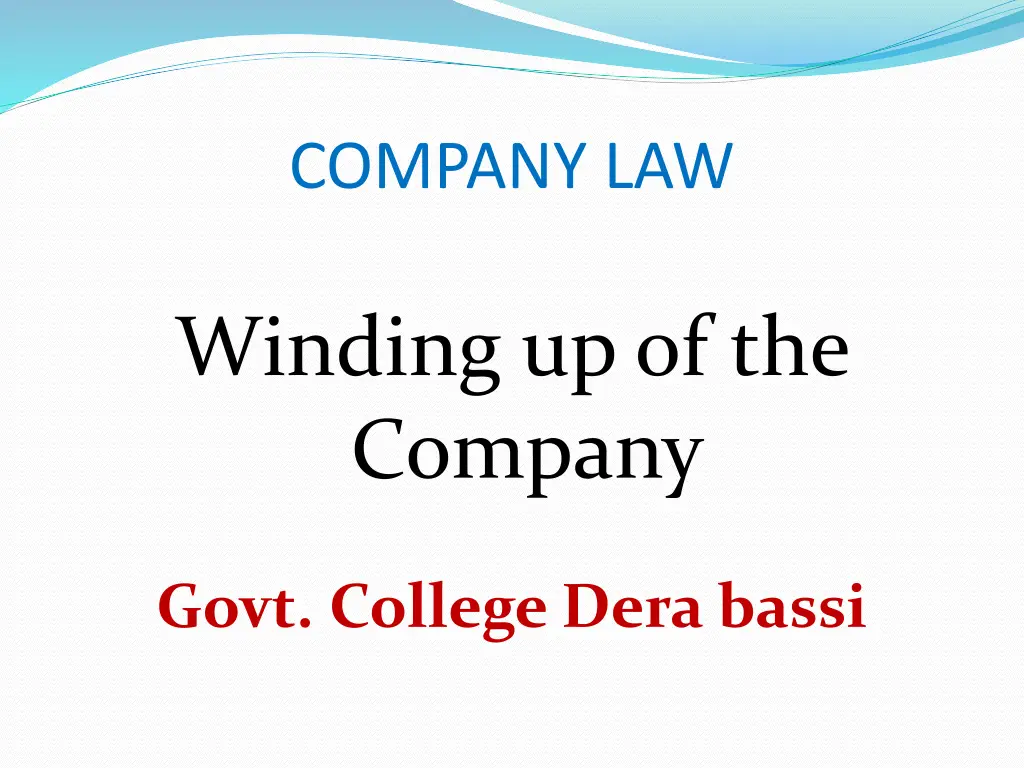
Understanding the Winding Up Process of Companies and its Consequences
Explore the comprehensive process of winding up a company, including the meaning, types of winding up, procedures, consequences, and the duties of liquidators. Learn about the different petitions for winding up, the appointment of a committee of inspection, general powers of the tribunal, and more.
Download Presentation

Please find below an Image/Link to download the presentation.
The content on the website is provided AS IS for your information and personal use only. It may not be sold, licensed, or shared on other websites without obtaining consent from the author. If you encounter any issues during the download, it is possible that the publisher has removed the file from their server.
You are allowed to download the files provided on this website for personal or commercial use, subject to the condition that they are used lawfully. All files are the property of their respective owners.
The content on the website is provided AS IS for your information and personal use only. It may not be sold, licensed, or shared on other websites without obtaining consent from the author.
E N D
Presentation Transcript
COMPANY LAW Winding up of the Company Govt. College Dera bassi
COMPULSORY WINDING UP SPECIAL RESOLUTION OF COMPANY. INABILITY TO PAY DEBT JUST AND EQUITABLE NON FILLING OF FINANCIAL STATEMENTS OR ANNUAL RETURNS WITH THE REGISTRAR. IF COMPANY ACT AGAINST SOVEREIGNITY AND INTERGRITY OF INDIA. SICK COMPANY
PETITION FOR WINDING UP COMPANY S PETITION {SEC 272[1](a)} CREDITOR S PETITION {SEC[1](b)} CONTRIBUTORY S PETITION {SEC[1](c)} JOINT PETITION{SEC[1](d)} REGISTRAR S PETITION {sec[1](e)} PETITION BY BA PERSON AUTHORISED BY CENTRAL GOVERNMENT{SEC[1](f)} CENTRAL GOVERNMENT S OR STATE GOVERNMENT S PETITION{SEC[1](g)}
CONSEQUENCES OF WINDING UP CONSEQUENCES OF WINDING UP ORDER ORDER 1) INTIMATION TO OFFICIAL LIQUIDATOR AND REGISTRAR. 2) COPY OF THE WINDING UP ORDER TO BE FILED WITH THE REGISTRAR. 3) ORDER FOR WINDING UP DEEMED TO BE NOTICE OF DISCHARGE. 4) SUITS STAYED ON WINDING UP ORDER. 5) RESPONSIBILITY OF DIRECTORS AND OFFICERS TO SUBMIT TO TRIBUNAL AUDITED BOOKS OF ACCOUNT . 6) POWERS OF THE TRIBUNAL. 7) EFFECT OF WINDING UP ORDER. 8) OFFICIAL LIQUIDATOR T0 BELIQUIDATOR.
DUTIES OF THE LIQUIDATOR SUBMISSION OF REPORT BY COMPANY LIQUIDATOR. TO TAKE OVER COMPANY S ASSETS. TO COMPLY WITH THE DIRECTIONS. TO SUMMON MEETINGS OF CREDITORS AND CONTRIBUTORIES. TO KEEP PROPER BOOKS. TO SUBMIT ACCOUNT.
APPOINTMENT OF COMMITTEE OF INSPECTION. TO SUBMIT INFORMATION IN PENDING LIQUIDATION. MAKING PAYMENTS INTO THE PUBLIC ACCOUNT OF INDIA.
GENERAL POWER OF THE TRIBUNAL POWER TO STAY WINDING UP PROCEEDINGS [SEC 289] SETTLEMENT OF THE LIST OF CONTRIBUTORIES AND APPLICATION OF ASSETS [SEC 285] DELIVEERY OF PROPERTY TO THE LIQUIDATOR [SEC 283] POWER TO ORDER PAYMENT OF DEBTS AND TO ALLOW SET OFF [ SEC 295] POWER OF TRIBUNAL TO MAKE CALLS [ SEC 296] ADJUSTMENT OF RIGHTS OF CONTRIBUTORIES [SEC 297]
POWER TO ORDER COSTS [ SEC 298 ] POWER TO SUMMON PERSONS SUSPECTED OF HAVING THE PROPERTY OF THE COMPANY [SEC 299] POWER TO ORDER PUBLIC EXAMINATION OF PROMOTERS,DIRECTORS ETC. [SEC 300] POWER TO ARREST ABSCOLDING CONTRIBUTORY [ SEC 301] POWER TO ORDER DISSOLUTION OF COMPANY [ SEC 302 ] POWER TO DECLARE THE DISSOLUTION OF THE COMPANY VOID
VOLUNTARY WINDING UP A voluntary winding up of a company is entirely different from a compulsory winding up. Voluntary winding up by the member or creditors of a company without interference by the tribunal. The Object of the voluntary winding up is that the company and its creditors are left to settle their affairs without going to tribunal.
CONSEQUENCES OF VOLUNTARY WINDING UP EFFECT ON STATUS ON COMPANY. BOARD S POWER TO CEASE ON APPOINTMENT OF LIQUIDATOR. AVOIDANCE OF TRANSFER ETC. AFTER COMMENCEMENT OF WINDING UP. DISCHARGE OF EMPLOYEES.
TYPES OF VOLUNTARY WINDING UP A MEMBERS VOLUNTARY WINDING UP. A CREDITORS VOLUNTARY WINDING UP. A. B.
(A) MEMBERS VOLUNTARY WINDING A member s voluntary winding up takes place only when the company is solvent. It is initiated by the members and is entirely managed by them. The liquidator is appointed by the members. No meeting of creditor is held and no committee of inspection is appointed.
PROVISIONS APPLICABLE TO MEMBERS VOLUNTARY WINDING UP i. APPOINTMENT OF LIQUIDATOR[SEC 310] BOARD S POWER TO CEASE [SEC 313] iii. POWER TO FILL VACANCY IN THE OFFICE OF LIQUIDATOR [SEC 311] iv. NOTICE OF APPOINTMENT OF LIQUIDATOR TO REGISTRAR [SEC 312] DUTY OF THE LIQUIDATOR TO INFORM THE ASSESSING OFFICER vi. GENERAL MEETING AT THE END OF EACH YEAR [SEC 316] vii. FINAL MEETING AND DISSOLUTION [SEC 318] ii. v.
(B) CREDITORSS VOLUNTARY WINDING UP Where a company propose to wind up voluntarily and the directors are not in a position to make the statutory declaration of solvency, the winding up is a creditor s voluntary winding up.
PROVISIONS OF CREDITORS VOLUNTARY WINDING UP MEETING OF CREDITORS [SEC 306] NOTICE TO REGISTRAR [SEC 306] iii. APPOINTMENT OF LIQUIDATOR [SEC 310] iv. COMMITTEE OF INSPECTION [SEC 315] LIQUIDATOR S REMUNERATION [SEC 310] vi. POWER OF BOARD TO CEASE [SEC 313] vii. VACANCY IN OFFICE OF LIQUIDATOR [SEC 311] viii. MEETING AT THE END OF EACH YEAR [SEC 316] ix. FINAL MEETING AND DISSOLUTION [SEC 318] i. ii. v.
DIFFERENCE BETWEEN MEMBERS VOLUNTARY WINDING UP AND CREDITOR S VOUNTARY WINDING UP CREDITOR S VOLUNTARY Declaration of solvency is not necessary Creditor s voluntary meeting is necessary. MEMBER S VOLUNTARY Declaration of solvency is must. Creditor s voluntary meeting in not necessary. Liquidator is appoint by members. Liquidator is appoint by both members and creditors.
LIQUIDATORS IN VOLUNTARY WINDING UP Appointment of liquidator.in a member s voluntary winding up, the company in general meeting shall appoint one or more liquidator for the purpose of collecting the company s assets and distributing the proceeds among creditors and of the liquidator the company in general meeting may fill the vacancy.(section 310 and 311). In the case of a creditors voluntary winding up, the creditors and the members at their respective meeting s, may nominate a person to be the liquidator of the company. However , the creditors are given a preferential right in the matter of the appointment of the liquidator with a power to the Tribunal to very the appointment on application made within seven days by a director, member or creditor. (sec.310)
Power of Tribunal to Appoint and Remove Liquidator in Voluntary winding Up Notice by liqidator of his appointment When a person is appointed the liquidator and accepts the appointment ,he shall publish in the official gazette notice of his appointment ,in the prescribed form. Effect of the appointment of liquidator On the appointment of a liquidator, in a member s voluntary winding up all the powers of the directors, including managing director, whole time directors as also the manager shall cease except so far as the company in general meeting or the liquidateor may sanction their continuance.(section313). Removal of liquidator In either kind of voluntary winding up, the Tribunal may, on cause shown, remove a liquidator and appoint the official liquidator or any other person as a liquidator in place of removed liquidator.the Tribunal may also remove a liquidator on the application of the registrar.
Contributory In a going company, that is before liquidation a member is liable bound to pay full amount on the shares held by him. This liability continues even after the company passes into liquidation. The shareholder then becomes a contributory and certain changes occur in his status , rights and liabilities. Section 2(26) defines the term contributory . It means every person who is liable to contribute to the assets of the company in the event of its being would up and includes the holder of fully paid up shares,the word liable to contribute to the assets of a company are very wide and might have been held to include persons other than members,such as debtors, and holders of share warrants, but it is now settled that it refers only to members, past and present and their representatives.
Who are liable as Contributories Present and past members A member of a limited company shall be liable to contribute the amount unpaid on the shares in respect of which he is a contributory, or the amount he has guaranteed to pay in the event of winding up .(section 285). Obligations of directors and managers whose liability is unlimited Director of a limited company is, in its winding up, liable to contribute as an ordinary member in respect of shares held by him. In addition to this liability, he may be liable to an unlimited extent under section 286.in the case of directors and managers whose liability is unlimited,under the provisions of Act shall, in addition to his liability to contribute as ordinary member of the company.
Holder of fully paid Shares A holder of fully paid shares is contributory but ,since he is no longer liable to make any contribution to the Assets ,he will not normally be put on the list of contributories un less he so wishes, or unless there is A prospect of the return of surplus assets . exceptionally, where fully shares where issued without consideration the holder may be liable for the full amount. Legal Representative of a Deceased Member The legal representatives of a contributory who dies either before or after he has been placed on the list of contributories shall be liable to contribute to the assets of the company and shall be contributories accordingly (section 430). a. Liability of present members b. Liability of past members(sec.285) contributory s right of set off.(sec. 295) c.
Liability of application and allottees of shares No allotment shall be made of any share capital of a company offered to the public for subscription, unless the amount stated in the prospectus as the minimum subscription amount has been subscribed.(sec. 39).An allotment made by a company to an applicant in contravention of this provision is voidable at the instance of the applicant. Allottee of Shares on the Faith of False and Misleading Prospectus A shareholder who has purchased shares from a company on the basis of a false or misleading prospectus can avoid his liability before the company has gone into liquidation. Accordingly;if a shareholder having right to rescind the contract for shares is on the register at the commencement of winding up,he cannot escape liability as a contributory unless he has commenced legal proceeding to enforce rescission before the date of the winding up.
CONSEQUENCES OF WINDING UP Consequences as to shareholders Consequences as to creditors Right of secured creditors Right of unsecured creditor 1. 2. Consequences as to servants and officers Consequences of proceedings against the company Consequences as to costs Consequences as to documents
EFFECT OF WINDING UP ON ANTECEDENT AND OTHER TRANSACTIONS FRAUDULENT PREFERENCE(SEC.328) : The rules of insolvency as to fraudulent preferences are applicable to the winding up of a company . According to that law any transfer of property or payment made by a person who is unable to pay creditors AVOIDANCE OF VOLUNTARYTRANSFER(sec.329):Any transfer of property or goods made by a company will be void if has been made within one year before the presentation of a winding up petition or the passing of a resolution for voluntary winding up. AVOIDANCE OF FLOATING CHARGE(SEC 332): prevents an insolvent company from creating a floating charge on its undertaking to secure past debts or for moneys which do not come in the hands of the company. DISCLAIMER OF ONEROUS PROPERTY (Sec.333):The liquidator of a company may,with the leave of the Tribunal, get rid of onerous property by disclaiming it. a. Land burdend with onerous covenants; b. Shares or stocks in companies; c. Any other property witch is unsaleable or is not readily saleable because it require the possessor to perfom certain acts or pay a sum of money; d. Unprofitable contracts.
WINDIND UP OF INSOLVENT COMPANY Section 325 of the Company Act applies to winding up of the company which cannot pay all its debts i.e.to an insolvent company only in respect of the following matters: (a) debts provable, (b) the valuation of annuities and future and contingent liabilities. and (c) the respective right of secured and unsecured creditors All person who would be entitled to prove for and receive dividends out of the assets of the company may come in under the winding up and make such claims against the company as they respectively are entitled to. But it is not necessary for a secured creditor to prove his debt in the winding up and he can stand wholly outside the winding up proceedings.
Winding up of Unregistered companies Meaning : Section 375 defines an unregistered company . It includes any partnership, association or company having eight or more members at the time when the petition for winding up is presented. However, it shall not include- (a) A railway company incorporated by any Act of other Indian law or any Act of Parliament of the United Kingdom; (b) A company registered under the Companies Act 1956. (c) A company registered under any previous companies law. The term unregistered companies does not cover associations formed contrary to the provisions of section 11 which are known as illegal associations. Section 376 provides that where a foreign company incorporated outside india has been carrying on business in india and ceases to do so, it may be wound up as an law of country of incorporation. parliament or
OFFENCES AND PENALITIES (1) Offence by Officers of Companies in Liquidation In any form of winding up , every past and present officer of the company is under an obligation to disclose to the liquidator all the properties of the company and any dealings with the same except in the ordinary course of business.Section 336 states that he is liable to be punished with imprisonment upto five years or fine or both if within 12 months next before winding up or any time thereafter. (2) Penalty for Falsification of Books Destroys , mutilates, alters, falsifies or secretes or is privy to the destruction, mutilation, alteration, falsification or secreting of any books, papers or securities, Makes or is privy to the making of any false or fraudulent entry in any register, book of account or document belonging to the company with intent to defraud or deceive any person, he is punishable with imprisonment for a term which may extend to seven years and is also liable to fine.(sec.336) 1. 2.
(3).Fraud Penalty for by Officers An officer of the company which is being would up by Tribunal or which passes a resolution for voluntary winding up shall be punishable with imprisonment upto two years and also to a fine in the following circumstances: i. If he has induced any person to give credit to the company by false pretences or by means of any other fraud; ii. If he has with intent to defraud creditors of the company concealed or removed any part of the property of the company.(sec 337). (4). Liability where Proper Account are not kept where proper books of accounts have not been kept for two years preceding the commencement of the winding up or since incorporation till commencement of the winding up, every officer who is in default shall be liable to imprisonment for a term which may extend to one year.But the officer may show that he acted honestly and that in the circumstances in which the business of the company was carried on, the default was excusable..(sec.338)
(5).Liability for Fraudulent Conduct of Business If in a winding up of a company ,it appears that any business has been carried on with intent to defraud creditors of the company or any other person or for any fraudulent purpose, the persons who are knowingly parties to such fraudulent trading may be made personally responsible for the debts and liabilities of the company without any limitation of liability. This liability may be enforced on application to the Tribunal by the official liquidator or any creditor or contributory. (6). Penalty for False Statement (sec.448) This section is a general section and penalises the making of a false statement in any document required by or for the purposes of any of the provisions of this Act or where any material fact knowing it to be material is omitted. (a) That the statement complained of is false in any material particular, (b) That the statement was made in any of the documents required by or for purpose of this Act, (c) That the accused made the statement knowing it to be false. The punishment under this section is imprisonment for a term which may extend to ten years and fine.
(7).Penalty for Wrongful Withholding of Property(sec. 452) Wrongfully obtains possession of any property of a company; Wrongfully withholds the property; Knowingly applies the property for purposes not permitted by the articles or the Act, he shall be punishable with fine upto Rs. 1 lac to 5 lacs. The trial Tribunal may also direct the accused to deliver or refund within a specified period any property wrongfully withheld or knowingly misapplied. The Tribunal may further direct that in default of such delivery or refund the accused will suffer imprisonment which may extend upto two years. a) b) c) (8) Penalty for improper use of Word Limited and Private Limited (sec.453) Unless a company is incorporated and the law requires, the words Private Limited or Limited cannot be used. Any unauthorised use of these words will be punishable with a fine of Rs.2,000 for everyday upon which that name or title has been used.
COMPOSITION OF CERTAIN OFFENCES{SECTION 441} (1) Notwithstanding anything contained in the code of Criminal procedure, 1973(2 of 1974), any offence punishable under this Act ,not being an offence punishable with imprisonment only, or with imprisonment and also with fine, may, either before or after the institution of any prosecution, be compounded by the central Government on payment or credit, by the company or the officer, as the case may be, to the Central Government of such sum as that Government may prescribe: (2) Nothing in sub-section (1) shall apply to an offence committed by a company or its officer within a period of three years from the date on which a similar offence committed by it or him was compounded under this section. (3) (a) Every application for the compounding of an offence shall be made to the Registrar who shall forward the same, together with his comments thereon to the Central Government. (b) where any offence is compounded under this section, whether before or after the institution of any prosecution , an intimation thereon shall be given by the company to the registrar within seven days from the date on which the offence is so compounded. (4) Any officer or other employee of the company who fails to comply with any order made by the Central Government under sub- section(4) shall be punishable with imprisonment for a term which may extend to six months, or with fine not exceeding fifty thousand rupees or with both. (5) No offences specified in this section shall be compounded except under and in accordance with the provision of this section. If the magistrate by whom any such case is heard discharges or acquits the accused, and is of the opinion that the accusation was false and either frivolous or vexation, the magistrate may call upon the shareholder to show cause why he should not pay

